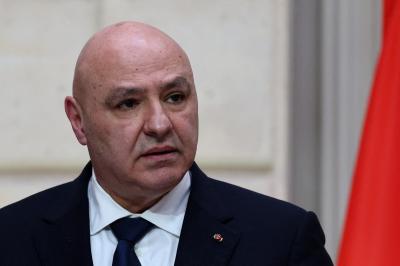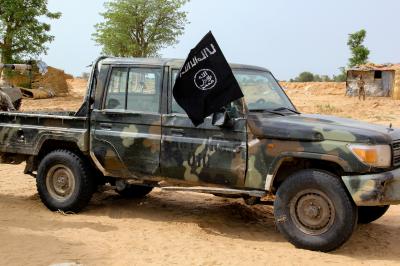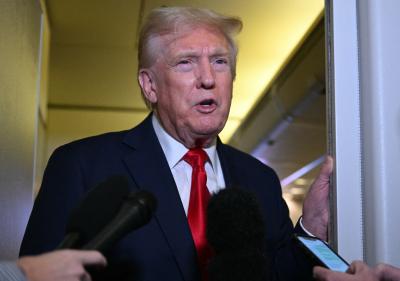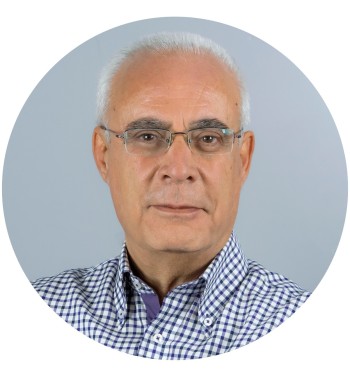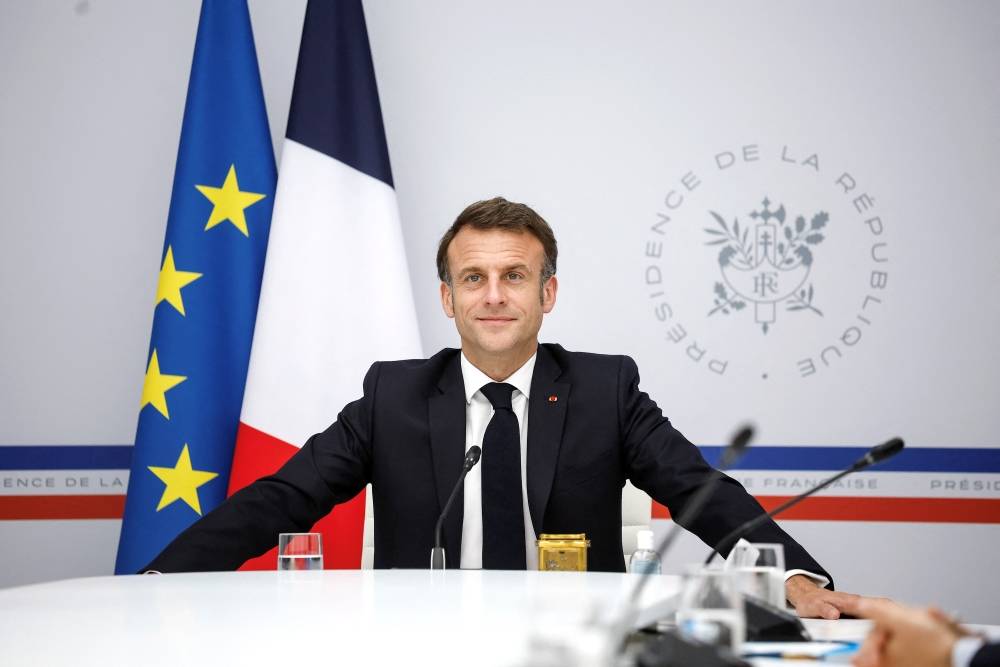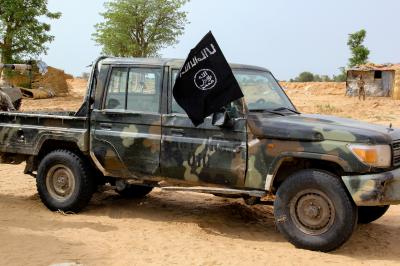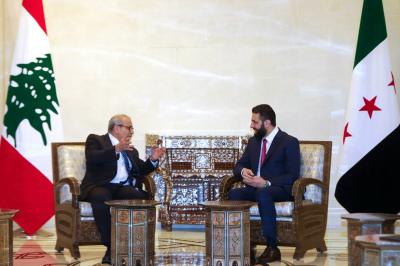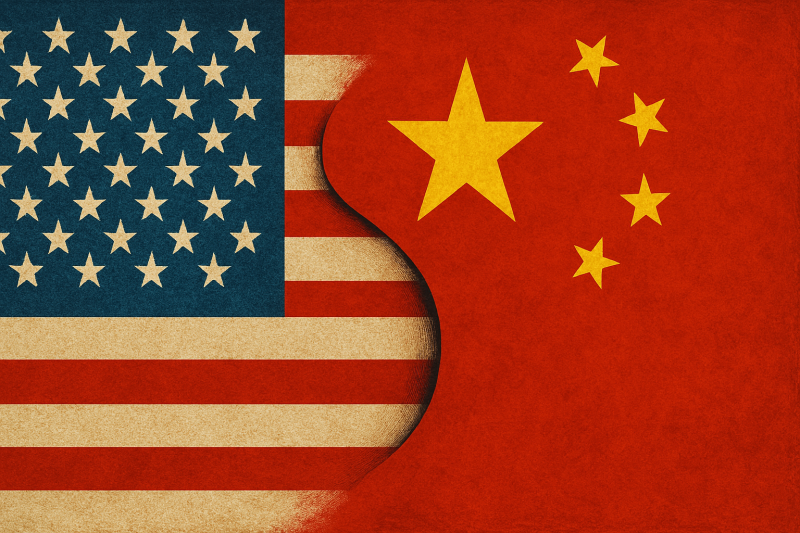Seven months ahead of the presidential election, which constitutes a pivotal moment for the future of aid to Ukraine and the direction of the war in its third year, Europeans are pondering the development of a strategy to fill the potential void left by the United States in the event of the former President Donald Trump's return to the White House.
French President Emmanuel Macron is advocating for a more effective and firmer European policy towards Russia, regardless of potential changes on the American political scene. His proposal to send NATO forces to Ukraine at some point has garnered support from Poland and the Czech Republic but has been rejected by Germany, the United Kingdom, and even the United States. The latter three countries prefer to adhere to the traditional approach of assisting Ukraine without triggering an open war with Russia, even though this approach has failed at the core of the military equation on the ground.
The Ukrainian conflict overshadowed the commemorations of the 75th anniversary of NATO's founding last week, with the alliance's support to Kiev becoming a crucial pillar of Ukraine's ability to resist Russia since the start of the war on February 24, 2022. European leaders do not conceal that Ukraine has been at an impasse since the failure of its counterattack last summer.
The Ukrainian impasse could prompt Russia to undertake a new large-scale military adventure. Did Macron choose to launch his call to send NATO forces to Ukraine after perceiving Ukrainian weakness? And could his call find a more favorable response if Russia appeared to be genuinely on the brink of making strategic progress on the ground in the near future?
Amidst the Franco-Russian tensions, a telephone call took place between the French Minister of Defense, Sébastien Lecornu, and his Russian counterpart, Sergei Shoigu, on April 3rd, the first of its kind since October 2022. The purpose of this call, initiated by Paris, was to inform Moscow that France "has no information proving a link between the terrorist attack on a concert hall near Moscow on March 22 and Ukraine" and to ask Russia to "stop exploiting it."
France is concerned about the risk that Russian authorities may use the links they mention between the attack and Ukraine as a pretext to launch a new large-scale attack this summer, which would have a certain impact on the Summer Olympics that France will host in July and August.
France has no doubt that the Islamic State in Khorasan has claimed responsibility for the terrorist attack several times, contextualizing it as a response to Russia's role in Syria and Afghanistan.
After the call between Lecornu and Shoigu, Macron issued a warning, stating that he is convinced that Russia aims to sabotage the Olympics, particularly in terms of media, in order to portray France as an "unprepared" country for this event.
Two days ago, the French Minister of Foreign Affairs, Stéphane Séjourné, took a firmer stance by stating that Paris no longer saw "any interest" in "holding discussions with Russian officials."
While Macron's firmness towards Russia is linked to developments in the Ukrainian conflict, it is also rooted in domestic political considerations. With the approach of the European parliamentary elections in June, polls show a lead for the far-right Rassemblement National led by Marine Le Pen.
It is natural that behind the intensification of rhetoric on the Ukrainian issue, Macron also seeks to increase support for his party, La République En Marche, by mobilizing against Russia and presenting himself as a European leader who will not allow another "Munich" in Europe. However, the problem Macron faces is that the potential deployment of French troops in Ukraine is rejected by 68% of the French public.
Beyond the national stage, France's shift in position follows its defeat in Mali, Burkina Faso, and Niger in the Sahel region over the past two years, as well as Russia's increasing influence in these countries, which have not hesitated to expel French forces from their territory.
Macron also seeks to counter Russian influence expansion in "Francophone" African countries by strengthening ties with Armenia, which was recently part of the Soviet space and is a member of the Collective Security Treaty Organization, including Russia and several former Soviet republics.
As Russo-Armenian relations continue to deteriorate following Azerbaijan's takeover of Artsakh, Paris is increasingly aligning with Yerevan. Armenian Prime Minister Nikol Pashinyan visited France last month, subsequently announcing the suspension of his country's accession to the Collective Security Treaty Organization. This was followed by the French Minister of Defense's visit to Yerevan and the signing of defense agreements, as well as Armenia's expulsion of Russian observers from Zvartnots International Airport near the capital.
The translation of the shift in French discourse towards Russia will depend on Macron's ability to convince other European countries, notably Germany and Italy, to implement a new strategy regarding the Ukrainian conflict that could involve direct engagement in the war, if such a measure is the only way to prevent Russia from winning in Ukraine.
The question is whether European countries could be directly involved in the Russo-Ukrainian war without American support. In the United States, it is unlikely that the situation will become clear before the November elections.
 French
French


